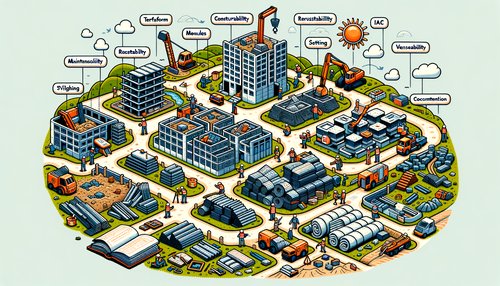Unlocking the Power of Containers: How Docker Engine is Revolutionizing Software Deployment
As the digital world evolves, the ways in which software is developed, deployed, and managed are undergoing significant transformations. Among the myriad of technological innovations, Docker Engine has emerged as a pivotal force in revolutionizing software deployment. This powerful platform has not only simplified the complexities of application development but has also enhanced the efficiency and scalability of software distribution. In this comprehensive blog post, we will delve into the intricacies of Docker Engine, exploring its fundamental concepts, benefits, and practical applications. By the end, you will have a deeper understanding of how Docker is reshaping the landscape of software deployment and how you can leverage its capabilities to streamline your development workflows.
Understanding Docker and Containerization
At its core, Docker is an open-source platform that utilizes containerization technology to enable developers to package applications into containers—standardized executable components combining application source code with the operating system (OS) libraries and dependencies required to run that code in any environment. This concept of containerization is not entirely new, but Docker has popularized it with its user-friendly interface and robust ecosystem, making it accessible to a wider range of developers and applications.
The Docker Engine: A Closer Look
Docker Engine is the underlying client-server technology that builds, ships, and runs Docker containers. It consists of a server (the Docker daemon), a REST API that specifies interfaces for interacting with the daemon, and a command-line interface (CLI) that interacts with the Docker REST API. Docker Engine supports both Linux and Windows platforms and can also operate in a lightweight Swarm mode for orchestrating and managing a cluster of Docker nodes.
Benefits of Docker Engine in Software Deployment
- Consistency Across Environments: Docker containers ensure that applications run the same way in every environment, eliminating the "it works on my machine" problem. This consistency extends from development to production, streamlining the software lifecycle.
- Efficiency: Containers share the host system's kernel, making them much more efficient in terms of system resources than traditional virtual machines. This efficiency translates into faster start-up times and lower overhead costs.
- Isolation: Docker provides each container with its own filesystem, networking, and isolated process space, which improves security and reduces conflicts between containers.
- Portability: Since containers include all necessary dependencies, they can be moved across different machines and cloud environments seamlessly, facilitating easier deployment and scaling.
- Scalability: Docker makes it easy to scale applications up or down with its container orchestration features, either manually or automatically, based on the application demand.
Practical Tips for Using Docker Engine
To harness the full potential of Docker in your software deployment strategy, consider the following practical tips:
- Use Docker Compose for Multi-container Applications: Docker Compose allows you to define and run multi-container Docker applications. With Compose, you use a YAML file to configure your application's services, networks, and volumes, and then create and start all the services from your configuration with a single command.
- Implement Docker Swarm for Orchestration: For applications requiring scalability and high availability, Docker Swarm provides native clustering capabilities to turn a group of Docker engines into a single, virtual Docker engine.
- Adopt Docker Volumes for Persistent Data: Docker volumes are the preferred mechanism for persisting data generated by and used by Docker containers. They are completely managed by Docker and work on both Linux and Windows containers.
- Secure Your Containers: Always ensure your Docker images are secure by using trusted base images, scanning for vulnerabilities, and applying the principle of least privilege to container processes.
Conclusion
Docker Engine has undoubtedly revolutionized the way developers build, deploy, and manage applications. By embracing containerization, teams can achieve unprecedented levels of efficiency, consistency, and scalability in their software delivery processes. Whether you are a seasoned developer or just beginning your journey in the world of containerization, Docker offers a robust set of tools and features to streamline your development workflow and enhance your applications' portability and performance. Embrace the power of Docker and watch as your software deployment process transforms, paving the way for a more dynamic and flexible application ecosystem.
As we continue to navigate the evolving landscape of software development, Docker Engine stands out as a beacon of innovation, guiding us towards a more efficient and integrated future. Now is the time to dive in, explore its capabilities, and unlock the full potential of your applications. The era of containerization is here, and with Docker, you are well-equipped to lead the charge.
Recent Posts

Unlocking the Power of Terraform: Mastering Conditional Expressions for Smarter Infrastructure Automation

Unveiling the Future: Navigating the Public Interface of Apache Airflow for Streamlined Workflow Management
Apache Airflow
Mastering Workflow Automation: Unconventional Apache Airflow How-To Guides for the Modern Data Enthusiast
Apache Airflow
Mastering the Cloud: Unveiling AWS CloudFormation Best Practices for Seamless Infrastructure Management

